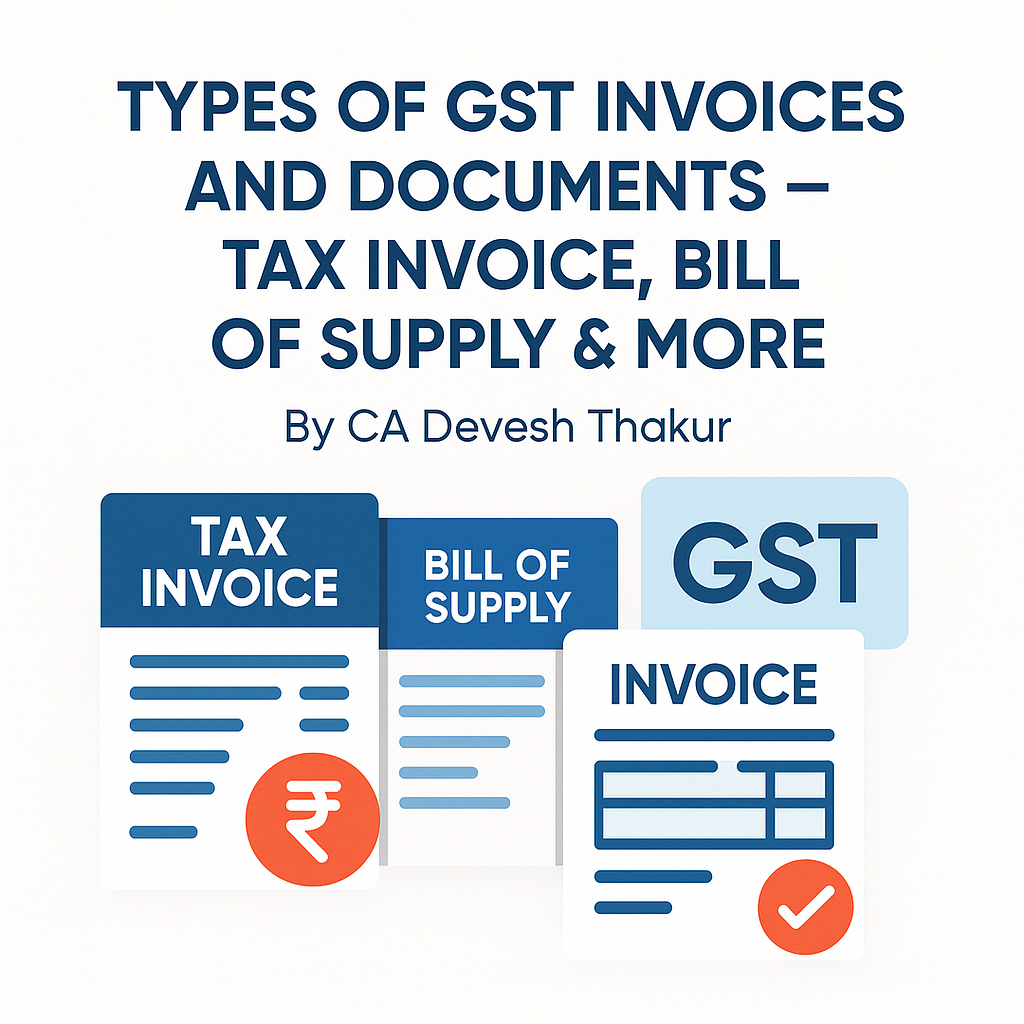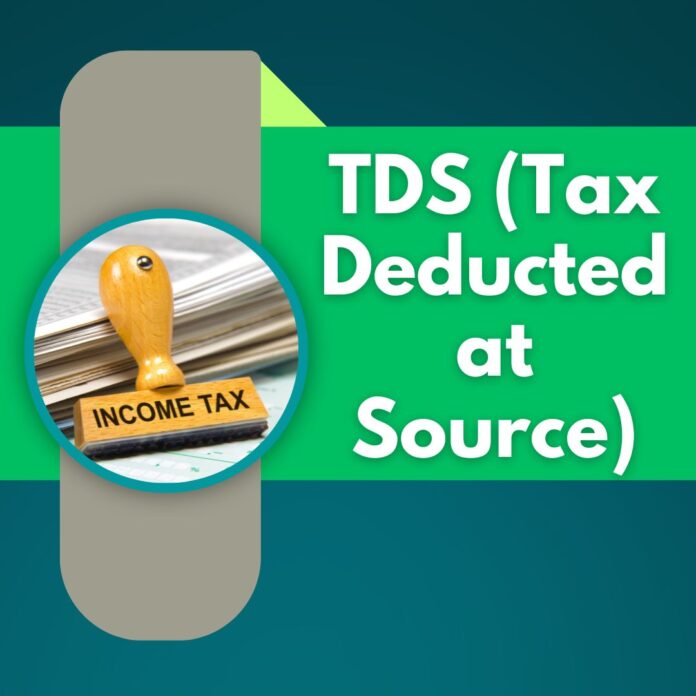When conducting business under the Goods and Services Tax (GST) regime in India, understanding and issuing the correct type of invoice or document is crucial for compliance. Whether you’re a regular taxpayer, composition dealer, or exporting goods, you must adhere to the formats and rules prescribed under the CGST Rules.
In this blog, we break down the various types of GST invoices and related documents with use-cases, applicable rules, and compliance pointers. Whether you’re a CA, business owner, or GST practitioner — this article is your go-to guide.
GST Document Summary Table
| Document Type | Issued By | When It’s Issued | Relevant Rule/Section | Purpose |
| Tax Invoice | Registered persons (excluding composition dealers & exempt suppliers) | For all taxable supplies (incl. zero-rated exports) | Rule 46, Rule 54 | Legal proof of supply for claiming ITC, showing tax charged. |
| Bill of Supply | Composition dealers or suppliers of exempted goods/services | When making exempt or composition supplies | Rule 49 | No tax to be charged. Basic document for transaction record. |
| Invoice-cum-Bill of Supply | Registered persons supplying both taxable & exempted goods to unregistered persons | When both supply types are made in one invoice | Rule 46A | Single invoice for both taxable and exempted items. |
| Receipt Voucher | Registered persons | On receiving advance payment for future supplies | Rule 50 | Confirms receipt of advance. |
| Refund Voucher | Registered persons | When supply is not made after receiving advance | Rule 51 | To return the advance when no invoice is raised. |
| Payment Voucher | Registered persons under Reverse Charge Mechanism (RCM) | At time of making payment to supplier under RCM | Rule 52 | Mandatory under RCM compliance. |
| Debit Note | Registered persons | When undercharged in original tax invoice | Rule 53 | Increases tax liability. |
| Credit Note | Registered persons | When overcharged or goods are returned/deficient | Rule 53 | Reduces tax liability. |
| Self Invoice | Registered persons purchasing from unregistered suppliers under RCM | At time of purchase from unregistered persons under reverse charge | Section 31(3)(f), Rule 46 | Issued by recipient to self. |
| Delivery Challan | Supplier or transporter | When goods are transported without a tax invoice (e.g., job work, SKD/CKD shipments) | Rule 55 | Transport proof for non-supply movements. |
Detailed Explanation of Each GST Document
1. Tax Invoice
Used for all taxable supplies, including exports. It’s the primary document for charging and collecting GST and claiming Input Tax Credit (ITC). Must include HSN/SAC, GSTIN, invoice number, tax details, etc.
2. Bill of Supply
Used when:
- You’re supplying exempt goods/services, or
- You’ve opted for the Composition Scheme under GST.
Since no tax is charged, it does not allow ITC to the buyer.
3. Invoice-cum-Bill of Supply
Permits a single document for both taxable and exempted supplies to unregistered recipients, avoiding dual paperwork.
4. Receipt Voucher
Mandatory when receiving advance payments before supply. Helps track advances and adjust GST liability.
5. Refund Voucher
If no supply follows an advance and no tax invoice was raised, issue this voucher to return the advance with legal clarity.
6. Payment Voucher
Under Reverse Charge, the recipient pays GST instead of the supplier. A payment voucher must be issued when paying such suppliers.
7. Debit Note
Used when the supplier undercharged tax or value in the original invoice. It increases the previously recorded liability.
8. Credit Note
Issued when:
- Goods returned,
- Tax charged was more than required, or
- There were deficiencies in supply.
This reduces GST liability.
9. Self Invoice
If you purchase from unregistered dealers under RCM, you’re required to create your own invoice and pay tax on their behalf.
10. Delivery Challan
Issued in non-supply scenarios, such as:
- Job work,
- Transportation in lots,
- Liquid gas supply, or
- SKD/CKD goods.
It is not a tax invoice, but supports legitimate movement of goods.
📌 Key Compliance Tips
- Always mention rule references on documents.
- Maintain serial numbers and records as per Section 35 of CGST Act.
- Ensure document retention for 72 months from the due date of annual return.
- For exports, link Letter of Undertaking (LUT) with tax invoices.
Why GST Document Compliance Matters
Proper issuance of these documents ensures:
- Smooth GST audits
- Input Tax Credit (ITC) eligibility
- Avoidance of penalties under Section 122 & 125 of CGST Act
Conclusion
Understanding the different types of GST invoices and documents is essential for any registered taxpayer in India. From a basic Tax Invoice to a special case like Self Invoice or Delivery Challan, each document plays a crucial role in your GST compliance journey.
For simplified GST learning, legal updates, and tax compliance tips, follow us regularly.




